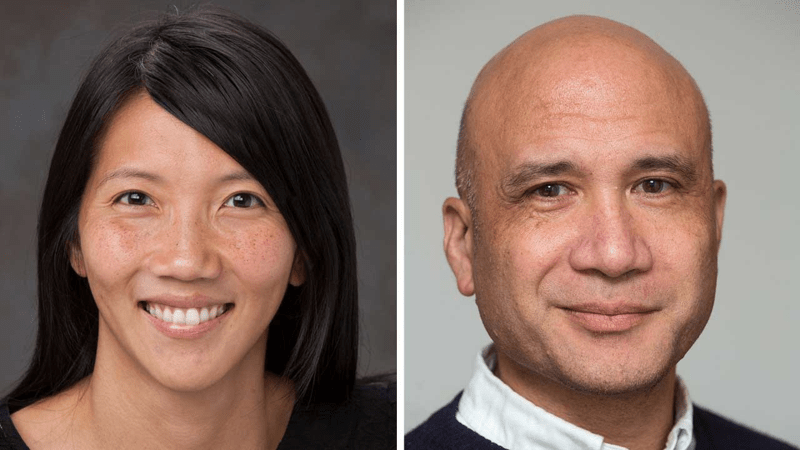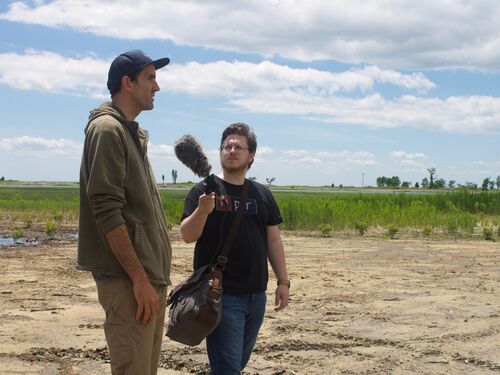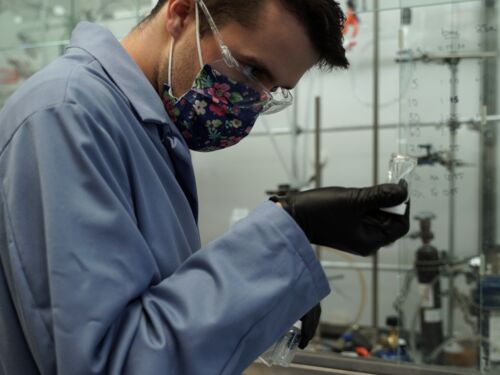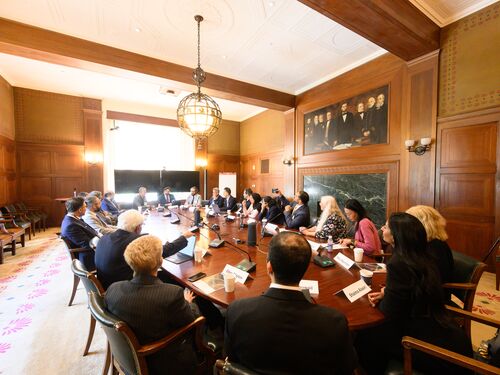Academies Study Will Examine COVID-19 in Correctional Facilities and Strategies for Decarceration
Feature Story
By Megan Lowry
Last update September 10, 2020
The National Academies of Sciences, Engineering, and Medicine started work on a new study last month that will provide advice to policymakers, corrections officials, and public health officials on best practices for mitigating the spread of COVID-19 in correctional facilities through large-scale release and decarceration efforts.
Emily Wang, associate professor and director of the SEICHE Center for Health and Justice in the Yale School of Medicine, and Bruce Western, Bryce Professor of Sociology and Social Justice and co-director of the Justice Lab at Columbia University, are serving as co-chairs of the committee undertaking the study. They answered some key questions about what their study will accomplish, and what we might learn from their forthcoming report.

Q: What questions about jails, prisons, and the COVID-19 outbreak is your study going to examine?
Wang: Our study will examine two key questions. First, we’ll consider how correctional facilities could implement release and decarceration, with respect to health, safety, and equity. Then, we’ll consider what community supports are needed to ensure that released individuals are able to successfully reenter their home communities.
Q: How do you think policymakers will be able to use this report?
Western: Our goal is for our final report to be actionable — we hope policymakers will be able to pick it up and run with it. We’re also hopeful that local leaders and corrections officials will be able to easily apply it to their own systems. We hope to provide a road map for how decarceration can be implemented, from the federal to the state and local levels.
Q: Who will be on the committee that’s writing this report? What expertise will they bring to the table?
Wang: Our committee consists of a group of experts from a range of fields, including criminology, sociology, law, public health, medicine, and the corrections system.
Many of our committee members have experience as practitioners, either working in the justice system or working with justice-involved individuals. For example, I’m a primary care physician at the Transitions Clinic in New Haven, which provides medical care to formerly incarcerated individuals upon release. We hope that the combination of our academic expertise and practical experience will help us produce an actionable, timely report.
Q: Are you going to hear from incarcerated individuals and from corrections officials? How will their experiences be factored in to the committee’s work?
Western: The experiences of incarcerated individuals and corrections staff and officials are at the heart of the committee’s work. We’re fortunate to have Deanna Hoskins as a committee member. As president of JustLeadershipUSA, she is deeply involved in issues impacting incarcerated people and their families and was herself formerly incarcerated.
We’re also lucky to have Secretary John Wetzel on the committee. He leads the Pennsylvania Department of Corrections and has a 30-year career in corrections, including as a former warden. We’ll be drawing on their experience as we draft the report.
Q: Will your report look into how decarceration might affect communities?
Wang: Yes, we’ll cover the effect of decarceration on communities in the report. Community health is a two-way street when it comes to decarceration. We’ll consider both how decarceration may affect the communities that receive individuals just released from a correctional system, and how it may affect COVID-19 transmission.
Q: Who is sponsoring this activity?
Western: The Robert Wood Johnson Foundation is sponsoring this research.
Q: When will the report be available to the public?
Western: This study is moving quickly, and we hope to release the report to the public in October.
Learn more about this study.
Featured Publication
Decarcerating Correctional Facilities during COVID-19: Advancing Health, Equity, and Safety
Consensus Study Report
·2020
The conditions and characteristics of correctional facilities - overcrowded with rapid population turnover, often in old and poorly ventilated structures, a spatially concentrated pattern of releases and admissions in low-income communities of color, and a health care system that is siloed from comm...
View details
More like this
Discover
Events
Right Now & Next Up
Stay in the loop with can’t-miss sessions, live events, and activities happening over the next two days.
NAS Building Guided Tours Available!
Participate in a one-hour guided tour of the historic National Academy of Sciences building, highlighting its distinctive architecture, renowned artwork, and the intersection of art, science, and culture.



